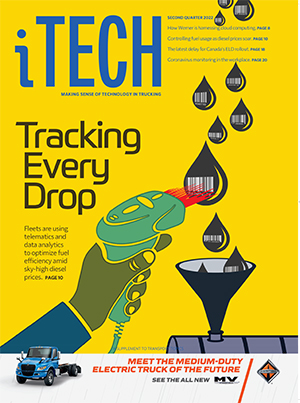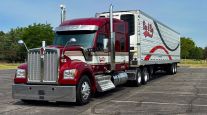CEO, Chairman, Isaac Instruments
What’s the Reason Behind Canada’s ELD Mandate Delay?

[Find the latest in trucking technology: Explore this quarter's issue of iTECH]
The Canadian government has pushed back full implementation of its electronic logging device mandate to Jan. 1, 2023. This is the second delay of the regulation that has been many years in the making. However, the reason behind each delay is quite different.
The decision to push the original implementation date of June 12, 2021, by exactly one year was due to a lack of approved devices. In the United States, ELD manufacturers need only self-register their devices, and fleets are responsible for any malfunctions. This is an important difference with the Canadian mandate, which requires third-party certification and puts the responsibility on ELD makers should problems arise. As the June 2021 deadline approached, no third-party-certified devices were available, making the delay a necessity.
Fast-forward 12 months and the ELD landscape in Canada looks dramatically different. As of early April, there were about two dozen approved ELDs, covering a large majority of trucks operating on Canadian highways. That includes our ELD and fleet management solution at Isaac which was among the first to receive third-party certification last fall. The process proved to be rigorous and, at times, humbling. Achieving certification was a major achievement for our team that took many months of painstaking work.
One year ago, the scrutiny was squarely on ELD makers to meet the strict standards laid out in the mandate. With plenty of certified devices now available, it’s fair to say vendors played their part to help create a safer and more level playing field.
Shifting the Focus
The spotlight has now shifted to whether law enforcement agencies across Canada are ready to enforce the regulation.

Despite the delay, DeLarochelliere says Canadian fleets still using paper logs should not wait to make the switch to ELDs. (Isaac Instruments)
From the latest delay, it appears they are not quite ready yet. I am sympathetic to the pressure on law enforcement, which needs to make sure everyone involved is fully trained and ready for this significant regulatory change. Yet this latest delay is also a bit frustrating, because we’ve known for many years this moment was coming.
As soon as the United States set its ELD regulation in motion, it was no longer a matter of if, but when, Canada would follow suit. That became even clearer after the tragic bus accident in 2018 involving a tractor-trailer and the Humboldt Broncos hockey team, which killed 16 people and injured 13 others.
The delay is penalizing fleets that selected a certified vendor. They are left waiting on their competitors using noncompliant systems or still waiting to adopt ELDs.
What Else Should Fleets Know?
Even with the delay, the many U.S.-based fleets that travel into Canada should ensure their ELDs are certified. The updated list is maintained by Transport Canada at https://tc.canada.ca. A small percentage of fleets could be using ELDs that work properly in the United States, but are not certified in Canada by the deadline. That will require either a technology change or a shift in operations to be compliant when crossing the border.

Q2 iTECH
►Using Technology to Track Fuel Efficiency
►Clevenger: How AI Is Streamlining Freight Movement
►Canada's ELD Mandate
►Dysart: Guarding Against Coronavirus
►5 Questions: Daragh Mahon, Werner Enterprises
Explore the Issue!
Likewise, any Canadian fleet still using paper logs and that views this latest delay as a reason to put off their transition to ELDs is making a big mistake. Even without a mandate, any fleet still working with paper is losing money. Using paper logs is an expense — not a saving. And there is no way to accurately measure just how significant your losses are. Savings reside in the moving away from paper logs.
And those savings grow exponentially over time for fleets that invest not only in a basic ELD, but seek out a true telematics partner to create greater operational efficiencies.
Waiting until closer to the deadline also is a mistake because of the time it takes to install the devices and properly train all personnel. Our many years of experience show that six months is the approximate time frame needed to complete installation and training. Fleets often find themselves chasing down the last few trucks that are regularly out moving freight. Until a device is installed in every vehicle and each person is trained, the ELD transition is not complete.
A Third Delay?
I’ve been asked whether there could be another delay, pushing hard enforcement further into 2023. While I don’t predict there will be one, I’m also not overly confident with my prediction. Isaac does not write the regulations or set the implementation dates.
As technology partners to trucking fleets, our role is to help fleets thrive, regardless of their location or industry segment. That’s why at Isaac we do not concern ourselves with potentially lost business opportunities because fleets have additional time to purchase ELDs from other vendors. Instead, we remain focused on improving highway safety across North America, and creating that level playing field, so bad actors are not rewarded.
DeLarochelliere is co-founder, CEO and chairman of Isaac Instruments, which provides a user-friendly solution that simplifies trucking for fleets throughout North America.
Want more news? Listen to today's daily briefing below or go here for more info:




